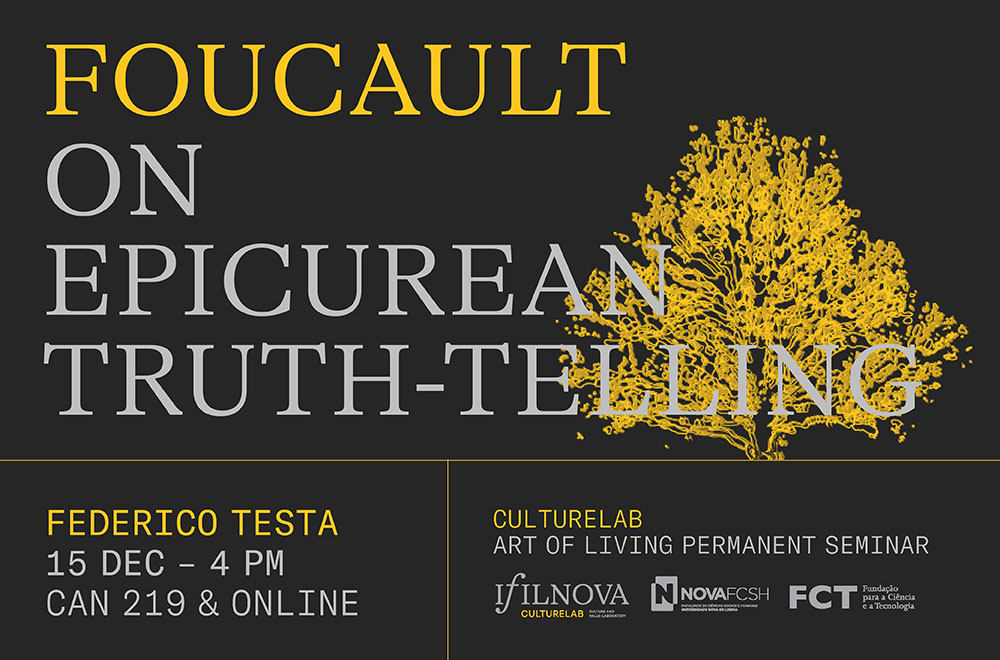Federico Testa

Critically engaging with Hadot’s criticism of Foucault’s lack of systematic attention to Epicureanism in his genealogy of the technologies of the self, this paper engages with Foucault’s reading of Epicurean practices of truth-telling. It shows that it is precisely in his reading of the Epicureans that one finds one of the first formulations of the notion of parrhesia in Foucault’s work. Drawing on his 1982 lectures on the Hermeneutics of the Subject, the paper analyses Foucault’s reading of Epicurean friendship as a site of articulation of individual and collective practices of truth-telling aiming at the care of self and others and salvation (sōtēria). By exploring the relation between truth-telling and care, the paper shows how Foucault draws on DeWitt to propose a reading of the institutional practices and organisation of the Epicurean school, which provides the concrete context for the practice of parrhesia. Finally, the paper situates Epicurean parrhesia in the context of a broader genealogy of confession. Drawing on unpublished archival material, the paper relates Foucault’s reading of Epicureanism to his studies of Christianity.
Federico Testa (University of Bristol)
Bio
Federico Testa is British Academy Postdoctoral Fellow at the University of Bristol, and holds a PhD from the University of Warwick and Monash University. He specializes in Continental Philosophy, focusing on twentieth-century French thought. His work gravitates around the problem of norms, normativity, and modes of living and its formulations in ethics, politics and the history of philosophy. He is currently revising his monograph On the Politics of the Living: Georges Canguilhem and Michel Foucault on Life and Norms for publication with Bloomsbury Academic, and developing a new research project on Georges Canguilhem and politics. He has also published on the modern receptions of ancient philosophy, having translated the work of Pierre Hadot (Selected Writings: Philosophy as Practice [Bloomsbury], with M. Sharpe) and Jean-Marie Guyau (The Ethics of Epicurus [Bloomsbury], co-edited with K. Ansell-Pearson), and has recently published an edited volume on the idea of philosophy as a way of life (Filosofia como Modo de Vida: Ensaios Escolhidos [Edições 70], with M. Faustino).
To join the session on Zoom, use this link.

